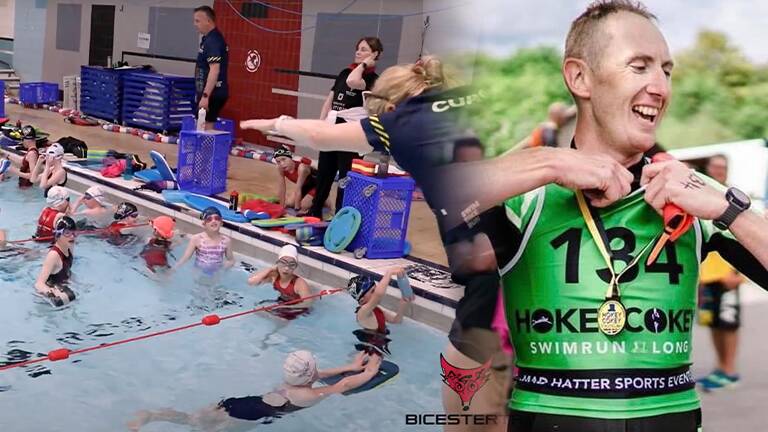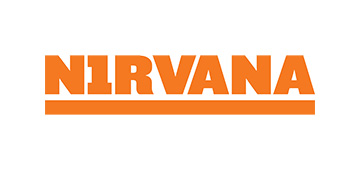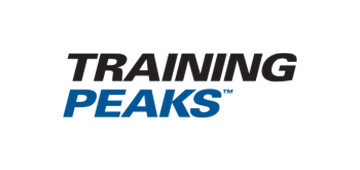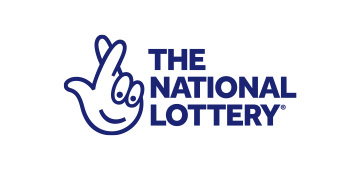Foreword from our Chairman, Bill James
As Chair of Triathlon England, I’m proud of the work our Board and Council do to support the ongoing development of our wonderful, young and dynamic sport in this country. Our sport, our athletes, clubs and governing bodies deservedly enjoy a very positive reputation here in England and Great Britain, and I’d like to ask for your support in maintaining that status.
At our AGM in November we asked Members to vote in support of a few but necessary changes to our constitution so that we met the obligations of the New Code for Sports Governance required of all publicly funded sports in England. I think I can safely say it’s unlikely this will affect you in your normal activities in Triathlon, and as a Governing Body we have very little to change compared with other sports that have been around a lot longer than us.
But the changes are mandatory for funded sports and we needed a 75% vote in favour by members attending the AGM on 11 November. A number of other sports requiring more significant changes have been required to secure their changes during the Summer, here is an update from Tracey Crouch, Sports Minister. It is important to us that our members and clubs feel they have been informed in an open and transparent manner. This video outlines what is involved, please take a little time to watch it, and please get in touch if you have any questions by e-mailing governance@britishtriathlon.org.
We are pleased that the resolutions were passed with 100% acceptance at the AGM on the 11th November 2017.
The New Code for Sports Governance and what it means for Triathlon;
In October 2016, the New Code for Sports Governance was launched by the Government. The Code aims to drive forward the levels of transparency, accountability and financial integrity that will be required from sports who ask for Government and National Lottery funding.
A copy of the Code in its entirety can be found here: www.uksport.gov.uk/resources/governance-code
The parts of the Code dealing with governance structures is generally very specific on how National Governing Bodies (NGBs) must organise themselves and make decisions. Fortunately, Triathlon England’s (TE) governance structure is generally compatible with the Code so the changes needed to the TE Regulations were relatively straightforward. However, the Code has much wider implications for how NGBs communicate and engage with their members and other stakeholders with their sport. TE is also working on these aspects and you will see other changes in the coming months, such as the content of TE’s annual report and an increase in transparency through an increase in governance information on the TE website.
Although compliance with the Code is not a legal requirement, UK Sport and Sport England have made it clear that any NGB that does not comply with the Code will receive no more public funding. While the percentage of TE’s income that comes from public funds has been decreasing over recent years, these funds still represent more than half of TE’s income. The Triathlon England Management Board (TEMB) and the Council have been consulted over several months, giving their input into the process and ultimately their full support of the changes proposed. Consequently, the Triathlon England Management Board (TEMB) and Council concluded that it was essential for TE to comply with the Code. TE has been given a detailed timetable for Code compliance and was required to make the necessary changes to the Regulations no later than November 2017.
In summary, the main changes to the TE Regulations that were required are:
- Ensuring that the Triathlon England Management Board (TEMB) is TE’s ultimate decision-making body.
- Changing the role of the Council, including an emphasis on consultation and advisory input in the formation of policy etc.
- Establishing a Nomination Committee to coordinate the appointment of directors, succession planning etc., with Council representation on the TEMB being brought within the scope of the competency-based appointment system.
- Introduction of term limits for Council representatives.
- Independence of the TEMB strengthened with (i) a 3rd independent role (to make a minimum of 25% independent directors); (ii) independent directors majority on Nomination Committee; and (iii) introduction of a senior independent director role.
Triathlon is committed to working with and delivering the Code and we want you, our members and our clubs to be assured that we are doing all that we can to comply. As a young, modern and dynamic sport and we are proud of our current levels of governance but we want to do and be the best that we can.
The Code is proportionate, expecting the highest standards of governance from organisations requesting the largest public investments. Triathlon as a sport receives large public investment. As such, we are required to meet the most stringent of the Code requirements. We take good governance very seriously and it is already one of our five strategic pillars. This sends a strong and positive message to our funders, stakeholders, clubs and members.
A copy of the Triathlon strategy document can be found below:
The Process - What has Triathlon England done about it?
After UK Sport and Sport England jointly published the Code, the TEMB and Council set up a working group to lead the process of bringing TE into compliance with the Code. In particular, the Working Group has worked with the TEMB and Council in preparing the amendments to be made to the TE Regulations in response to the introduction of the Code.
The working party is made up of;
- Triathlon England Board Member for Business - Claire Stirling
- Triathlon England Representative for the Council - Jane Wild
- Former Triathlon England Board Director and former Council Member (and qualified solicitor) - Lawrence Green
- Triathlon Governance Lead and Executive Team Member - Kay Simnett
It had been intended that a review of the TE Regulations should take place at around this time in any case to check that the governance structure adopted when TE was created approximately ten years ago still served the needs of TE and its membership. However, a decision was taken early in the process that it would not be practicable to undertake a general review of the governance structure at the same time as addressing the more urgent need to bring TE into compliance with the Code. It was felt that if the two processes were linked, any difficulties in reaching a consensus on the future governance structure could impede the Code compliance process, placing the TE’s public funding at risk.
TE’s governance structure was modelled on what was considered to be best practice at the time it was adopted and is quite modern compared to the position in some other sports. This means that it has not been necessary to make radical changes as a result of the Code, which has allowed a two-stage process to be adopted with Code compliance being prioritised in 2017 prior to a wider review of governance structure taking place.
This means that all of the amendments to the TE Regulations proposed by the TEMB and Council at the 2017 AGM relate to the introduction of the Code. We can confirm that all proposals made were fully supported by the Board and Council following a period of consultation between them and the Governance Working Party.
The Engagement Process
The amendments to the TE Regulations that the TEMB and the Council presented to the 2017 TE AGM for approval were published well in advance. This was so that interested members had time to consider the changes and raise questions on them. The Working Group would still welcome feedback from clubs and individual members on the proposals and is happy to enter into a constructive dialogue on:
- The substance of the amendments; and
- The way that the amendments are presented to the AGM for voting.
If you have feedback or queries on the changes or any other queries on governance that you would like to send to the Working Group, please send an email containing your comments to governance@britishtriathlon.org.
All the amendments were be presented to the AGM for approval in a single resolution, which needed the support of 75% of members attending the meeting for the changes to be adopted.
While many of the proposed amendments were essential to ensure that TE complies with the requirements of the Code, there are others that are not essential but which are considered by the TEMB and Council to be beneficial or desirable in response to recommendations or suggestions set out in the Code. Where objections were received from members on non-essential amendments to the TE Regulations, the Working Group liaised with the TEMB and Council with a view to separating out these elements from the main resolution so that they can were voted on separately by members at the AGM (where it is practicable to do so).
There are also some cases where amendments to the TE Regulations are essential but where a number of different approaches could be taken to bring TE into compliance with the Code. In these cases, the Working Group worked with members who have concerns (and with the TEMB and Council) to see how those concerns could be accommodated and, allowed the options to:
- Changes being made to the proposals to be put to the AGM; or
- Alternative approaches being presented at the AGM for members to choose between.
However, the TEMB and Council would not agree to any changes being made to their proposals that they consider would compromise TE’s compliance with the Code. If any members did not consider that their concerns had been properly addressed or wished to propose changes that would prevent TE from complying with the Code then they were entitled to propose their own resolutions to the AGM through the process set out in the existing TE Regulations, which can be found here.
The Detail
The following provides a detailed description and explanation of changes to the TE Regulations which were proposed as a result of the adoption by Sport England of “A New Code for Sports Governance”. This information will be kept up to date as and when any changes to the proposals are agreed by the TEMB and Council. Since this document was first published, additional minor changes have been added in respect of Regulations 14, 15 and 16.
Regulation 9
This regulation allowed the TEMB to make changes to the TE membership scheme. It incorporated safeguards on consultation and allowed the Council the ability to block changes if insufficient consultation had taken place. This effective right of veto held by the Council was considered to be inconsistent with the TEMB being the ultimate decision-making body within Triathlon England (as required by the Code). The Council’s blocking rights have been removed while retaining the same requirement for appropriate consultation. A specific right for the Council to be consulted on and make recommendations on these matters has been added to Regulation 21.
Regulation 14
This regulation allowed the TEMB to decline an application for membership of TE and permited the person or body whose application has been refused to request a review of that decision by the Council. The revised Regulation retains the involvement of the Council in reviewing the situation but makes it clear that the final decision on membership remains with the TEMB (as TE’s ultimate decision making body).
Regulations 15 and 16
These Regulations provided for the appointment and removal of Patrons by the Council. The role of Patron is purely honorary and, in practice, no one has ever been appointed to this position by the Council. The revised Regulation retains a Council role in nomination of candidates but ensures that only the TEMB (as TE’s ultimate decision making body) is able to appoint or remove Patrons.
Regulation 18
The Council is made up of a representative from each of each of the ten Triathlon England Regional Committees (which are elected each year by TE members in each Region). There has previously been no limit on how many years an individual can serve on the Council (and indeed some Council members have been on the Council since its inception over ten years ago). This has been changed so that the maximum tenure on the Council will be eight years. A person who has served on the Council for eight years will not be able to re-join the Council for at least four years after they were last a member of the Council.
Regulation 21
This sets out the purposes of the Council. Previously this included supervision of the TEMB and approval of budgets and plans proposed by the TEMB. These functions are considered to be inconsistent with the Code requirement that the TEMB be the ultimate decision-making body within TE. The purposes of the Council are being recast to give the Council to be consulted and make recommendations on these matters. The revised Regulation also gives responsibility to the Council providing constructive challenge to the TEMB and generally holding the TEMB to account on behalf of the membership. It is hoped that this will strengthen the role of the Council in formation of policy by giving it a formal role earlier on in the decision-making process.
Regulation 39
The Code requires that at least 25% of the TEMB be independent. The TEMB normally has ten members, of which the directors holding the finance and business strategy portfolios previously must be independent. To be compliant with the Code, a third director role must be designated as an independent role. The Communications and Marketing Portfolio has been re-designated as an independent directorship in order to achieve this. This mirrors the existing position for the equivalent role on the BTF Board. The current Communications and Marketing Director, Sally Lockyer, is considered to be independent (having had no previous roles within triathlon prior to her appointment) and will continue in post. This has been clarified by our funders’ governance representative.
The Code also requires that one of the independent directors on the TEMB be designated as the “Senior Independent Director”. The amended Regulation 39 sets out the functions to be performed by the Senior Independent Director.
The test for whether an individual is considered to be independent is contained in the revised Regulation 48 and will normally be assessed when that person is considered for appointment to the TEMB.
Regulations 40 and 41
The Code requires that appointments to the TEMB are made by the TEMB on the recommendation of a Nomination Committee of the TEMB and that the majority of that committee should be made up of independent directors. This role was previously undertaken by the Council. This appointment process has been changed to create a Nominations Committee consisting of the Chair, the three independent directors and one of the Council representatives on the TEMB (nominated by the Council).
Although the three Council representatives on the TEMB will also be appointed by the TEMB on the recommendation of the Nominations Committee following a competence-based process, the Council members from the relevant Regions and the Council will control the nomination process for these directorships. If the Nominations Committee is not able to recommend a candidate that has been nominated for one of these roles it will be obliged to work with the Council to identify a suitable alternative candidate.
There is a requirement that the recruitment for at least the Chair and the Independent Directors takes place via an open process. This reflects the requirements of the Code but will not mean any change in practice because TE already uses an open recruitment practice of all the seven TEMB members that are not recruited from the Council.
The amended Regulation makes it clear that the Nominations Committee can include individuals who are not members of the committee (e.g. Council members) when bringing together interview panels.
There are consequential amendments to Regulations 42, 44 and 46.
Regulation 42
The Code has specific requirements relating to the co-option of additional members onto the TEMB. These emphasise the exceptional and temporary nature of such appointments and Regulation 42 has been amended to be consistent with those requirements.
Regulation 45
There was previously no limit on tenure of the Council representatives on the TEMB. The Code requires these directors to be subject to tenure limits in the same way as other members of the TEMB. Regulation 45 has been changed to impose a limit of four terms of two years on these directors (which is equivalent to the limit for other directors of two terms of four years). None of the current Council representatives on the TEMB have exceeded this limit and therefore will be able to remain on the TEMB for the remainder of their current term of office.
The Code allows a number of exceptions to the normal tenure limits, including:
- The Chair of an organisation may have a longer total tenure up to a total of twelve years.
- In exceptional circumstances (such as facilitating succession planning) an extra year may be added to the normal maximum tenure.
- Tenure limits may be re-set once an individual has stepped down for at least 4 years.
The Code gives guidance on the advantages of these exceptions and the TEMB and Council considered that it would be beneficial to amend the Regulations to reflect them. The amendments to Regulation 45 retain the maximum tenure of the Chair at two terms of four years in that role but allow one term of office that the Chair has previously served on the TEMB in a different role to be disregarded. The other exceptions to tenure limits allowed by the Code are also reflected in the amended Regulation 45.
UK Sport and Sport England have made it clear that if an individual moves between the TEMB and the BTF Board the tenure limits should apply to the total time served across the two boards. The amendments to Regulation 45 takes this into account while making it clear that if a person serves on both boards simultaneously then that period of time will not be double counted.
Regulation 56
As part of the strengthening of the independent element of boards, the Code suggests that organisations consider amending their board quorum so that board meetings should have a minimum number of the independent directors’ present in order for a board meeting to be quorate. Regulation 56 previously stated that the at least five directors had to attend a TEMB meeting in order for that meeting to be quorate. The TEMB and Council consider that it would be beneficial to ensure that at least one of the independent directors is present when the TEMB makes decisions and Regulation 56 has been amended to reflect that.
Regulation 95
Although the Code does not specifically address the process by which board directors may be removed from the board, it is considered that the power that the Council previously had to remove TEMB directors was inconsistent with both the role of the TEMB as the ultimate decision-making body within TE and the new Nomination Committee’s functions. This Regulation has been amended so that the process to remove a director will follow a similar process to that used when directors are appointed. In order for a director to be removed from the TEMB through this process both the Nomination Committee and the TEMB would have to support that decision.
The above changes have been through a process of engagement with the Triathlon England Board and Council at two Board meetings and have full approval from each body as part of those meetings.
Get In Touch
It is important to us that you have the opportunity to raise any queries, seek clarification and have the opportunity to comment. You can get in touch with us at governance@britishtriathlon.org. A member of the Governance Working Party will endeavour to respond within 3 working days.
Please see here for our Governance Q&A section
















